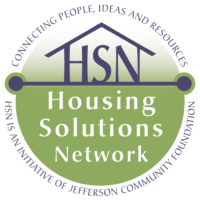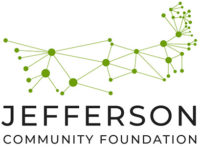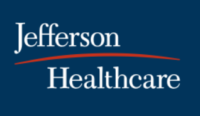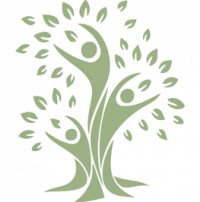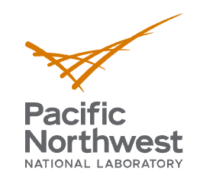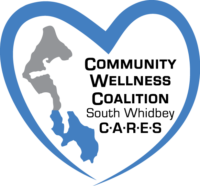The COVID-19 pandemic has had widespread effects throughout every aspect of life and society. The pandemic response has required leaders in every sector and at national, state and local levels–to take in information and assess options and tradeoffs to make decisions. This can be an extraordinary challenge in the face of a constantly evolving situation. This virtual dialogue series responds directly to decisions being navigated in local communities on a daily basis. The focus is on a topic area that would benefit from exploring how to interpret and apply the best available scientific information, even when aspects of the science are limited or uncertain. The event is a structured, facilitated panel designed around questions local decision makers grapple with as they manage the pandemic response and recovery. The interactive dialogue format enables examination of key questions, drawing on multiple types of knowledge and expertise.
The Community Dialogue Series, founded through a partnership with the Pacific Northwest National Laboratories, is carried out under the guidance of the WSAS COVID-19 Steering Committee with a grant from the National Science Foundation.
How can a community grow in ways that enhance health?
A Dialogue with Spokane Communities
Monday, November 8, 2021, 2:30-4:00 pm PT (virtual)
A brief event summary and a full event summary report are available.
This discussion explored how the use of Spokane’s built environment (including housing, parks, roads, etc.) has changed during the COVID-19 pandemic and how that can inform the city’s growth in order to build for healthy communities. The conversation was designed to help Spokane’s communities and decision-makers address the challenges – and the opportunities – in the city’s growth. In a facilitated dialogue, panelists explored how growth and the built environment intersect with community health as well as how actions in the public and private sector can impact these changes.
Panelists included:
- Alisha Benson, CEO, Greater Spokane Incorporated
- Kiantha Duncan, President, NAACP Spokane (unable to attend)
- Margo Hill, Associate Professor, Urban and Regional Planning, Eastern Washington University
- Patrick Jones, Executive Director, Institute of Public Policy & Economic Analysis, Eastern Washington University
- Pablo Monsivais, Associate Professor, Nutrition and Exercise Physiology, Washington State University
- Robert Stevens, Community Health Worker, Spokane
- Glen Duncan, Professor and Chair, Nutrition and Exercise Physiology, Washington State University (Moderator)
This event was supported by the National Science Foundation under Grant No. 2122687.
In addition to the panelists listed, WSAS would like to express gratitude to the many community members and organizations who helped to shape and share this event, including:
- David O’Brien, MD, Chief Executive, Multicare Inland Northwest Region
- Sarah McNew, West Spokane Wellness Partnership
- Sterling McPherson, Washington State University College of Medicine
- Pam Kohlmeier, Chair, Spokane County Disaster Clinical Advisory Committee
- Colleen Kerr, Office of External Affairs and Government Relations, Washington State University
- Community Prevention and Wellness Initiative, Washington State Health Care Authority
How does housing contribute to a thriving community?
A Dialogue with Coastal Washington Communities
Wednesday, October 20, 2021, 9:30-11:00 am PT (virtual)
A brief summary and a full event summary report are available.
This discussion explored questions about housing challenges that have been exacerbated by the COVID-19 pandemic. These challenges affect the community in multiple intersecting ways, such as economic stability and growth, sustaining a healthy and vibrant community, shifting demographics, and local workforce capacity to provide essential services. The conversation was designed to help uncover how looking at housing challenges through a wider lens can be an opportunity to help communities thrive going forward.
Participating panelists included those working on various dimensions of housing in coastal counties of Washington State and scientists who study various aspects of the role of housing in society. In a facilitated dialogue, they explored how the ways we understand housing intersect with public policy choices as well as actions taken outside the public sector.
Panelists included:
- Jamie Maciejewski, Executive Director, Habitat for Humanity of East Jefferson County
- Lance German, Real Estate Agent, REMAX Prime, Clallam County
- Greg Winter, Executive Director, Opportunity Council, Island, San Juan, and Whatcom Counties
- Jennifer Sherman, Professor, Sociology, Washington State University
- Gregg Colburn, Assistant Professor, Real Estate, University of Washington
- Laura Benjamin, Senior Planner, Puget Sound Regional Council
- Celestina Barbosa-Leiker, Vice Chancellor for Research, Washington State University Health Sciences Spokane (Moderator)
This event was supported by the National Science Foundation under Grant No. 2122687.
In addition to the panelists listed, WSAS would like to express gratitude to the many community organizations that helped shape and disseminate this event:
What is the role of COVID-19 testing in helping businesses operate during the pandemic?
A Dialogue with the Tri-Cities Business Community
Tuesday, December 8, 2020, 9:00 – 10:30 am PT (virtual)
The full recording can be accessed here and a full event summary report is available here.
Business leaders and the scientific community came together to discuss ongoing challenges and share information related to navigating the COVID-19 pandemic in the Tri-Cities region. More than 135 online attendees from a variety of backgrounds participated in this virtual dialogue. The main purpose of the discussion was to engage in a factual discussion around how COVID-19 testing can help businesses mitigate the challenges of the pandemic. The conversation covered the types of COVID-19 tests that are available and how they work, what kind of test should be used in certain situations, why getting results from some tests takes longer than others, and the need for clear, trusted, and transparent information about COVID-19.
Read more about the speakers and community partners here. This event was co-hosted by the Washington State Academy of Sciences (WSAS) and the Pacific Northwest National Laboratory (PNNL).





